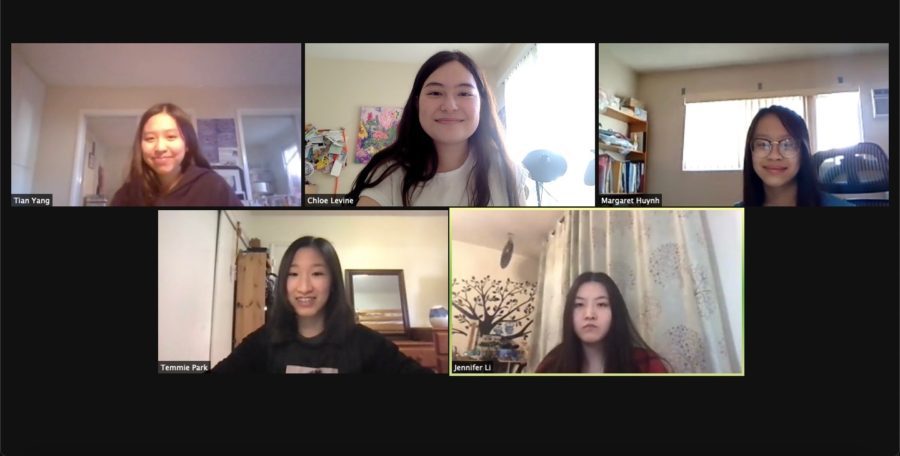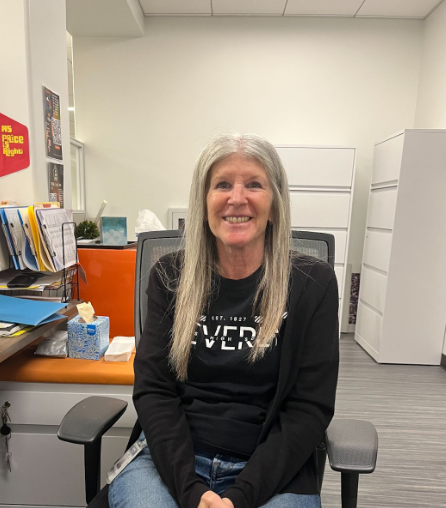Kate Kotlyar staff writer
Attacks on the Asian American/Pacific Islander (AAPI) community increased amid the spread of COVID-19 in the United States.
According to a report on Feb. 9 from San Francisco based group Stop Asian American Pacific Islander Hate (Stop AAPI Hate), the organization received 2,808 first-hand reports of attacks against Asian Americans in 47 states and the District of Columbia since COVID-19’s spread in March 2020, compared to the about 100 hate crimes against Asian Americans in prior years. California accounts for 44% of those cases.
AAPI students have noticed a rise in racist comments due to coronavirus’s origins in Wuhan, China.
“It was months ago at school when coronavirus first broke out. One time I went into a bathroom and I opened the door and then a bunch of girls pointed at me and were like, ‘Coronavirus!’” sophomore Margaret Huynh said. “I was confused because that’s not a normal thing to do. In the moment, I was like, ‘Oh, okay,’ and then moved on. As I was walking away from the situation, my blood started boiling, but since I was already walking away, I just had to calm down.”
Huynh’s mother has been experiencing similar comments at her work. She works as a nail tech at a spa and nail salon.
“Sometimes I hear [my mom] talking about the stuff that happened to her at work and it definitely sounds like it was racially motivated. That makes me sad because she has to go through all that at work quite often. Also, people make weird, racist comments at her,” Huynh said. “It makes me feel icky when I hear about it.”
Six out of six of the interviewees described the stereotype and idea of Asian people acting in a submissive manner. English teacher Minna Kim hopes that all parties involved will be less “complicit” in reacting to these attacks, despite the stereotype.
“It’s part of Asian culture to conform and do what’s best for the group [and]…be quiet and not make trouble at our cost. Right now is a good moment to see that’s not the best strategy,” Kim said. “I do not want to see people who look like my mom and dad being attacked just because they are Asian. That’s enraging and disgusting.”
Similarly to Huynh, junior Tina Yang’s parents warned her of the dangers she may face because of her ethnicity.
“A few days ago, I had an orthodontist appointment in the morning. [My parents] were dropping me off [and] I have to go to the sidewalk to wait for them to pick me up. My mom—it’s a small thing but this has never happened before—my mom was like, ‘If you see anyone doing strange things around you, don’t show your face,’” Yang said.
When she first found out about the increased attacks, Kim was “heartbroken” to see videos of elderly Asian people being attacked. According to the report by Stop AAPI Hate, 7.3% of the attacks against Asian Americans are aimed at the elderly.
“I see, in those videos, people who look like my mom, people who are minding their own business and people who are small, old and frail. [I’m] both heartbroken for the victims and enraged. I want to jump through the video and chase after those guys and say, ‘Fight me! Fight someone who’s actually equal to your health, and maybe equal to your age,’” Kim said.
Likewise, junior Jennifer Li and junior Isaac Colendres both felt “disgusted” when they first heard of the increase in attacks on AAPI individuals.
All of the interviewees believe that former President Donald Trump calling COVID-19 the “Kung flu” influenced the rise in attacks.
“The years of incendiary language coming from the ex-President calling this the ‘China virus’ or the ‘kung flu’—how can that not have an effect? His words have been consistently disrespectful, if not pushing or encouraging people to behave in a way that is violent,” Kim said.
As an attempt to halt these attacks, president of the Our AAPI Voices Club, junior Chloe Levine discussed ways she plans to help out the AAPI community.
“We want to start fundraising to help people who have been negatively affected by the hate crimes. We want to help people with relief and we want to donate. We want to start a website and sell stuff and donate,” Levine said.
Yang wants the AAPI community to “stand up” for itself. Colendres agrees that his “culture isn’t some group of people [to] conquer.”
“I do hope that…we have a big change in how we perceive these attacks in Asian culture. We’re told to just be bystanders, just take [it]. A lot of Asians have grown up [with the idea] that if you’re being attacked, just don’t say anything, you just let it happen,” Colendres said. “The fact that we just keep ignoring it, that just enables more racist people to come through. I just hope that the AAPI community can really come together and put our foot down.”





























